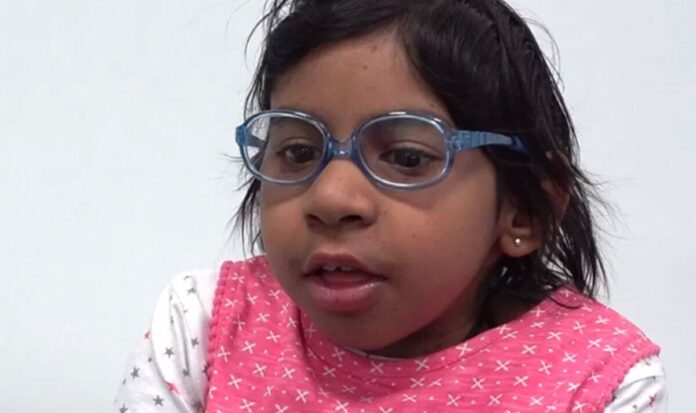Aditi Shankar with her parents (Image: PA Media) Eight-year-old Aditi Shankar received a kidney from her mum – and doesn’t require long-term medication to ensure the body doesn’t reject the donor organ. Doctors at Great Ormond Street Hospital reprogrammed Aditi’s immune system before the operation by exposing her to bone marrow stem cells from her mum, Divya. Within weeks of the transplant, Aditi was taken off immunosuppression, which protects her from the long-term side effects of taking the drugs. Aditi is now back at school, without having to take medication, and can continue to enjoy her life. “I can go swimming ,” Aditi beamed. Mum Divya told PA Media press agency: “I was so happy to give her blood cells and a kidney. I just feel so proud.” Aditi Shankar is now back at school (Image: PA Media) Professor Stephen Marks, children’s kidney specialist at Great Ormond Street Hospital (GOSH) commented on the success of the transplant. “[Aditi] is the first patient in the UK who has had a kidney transplant to not require immunosuppressive medication after the surgery,” said Professor Marks. “A month after the transplant, we were able to take her off all of her immunosuppression, which means she doesn’t get the side effects of the drugs. “It really is great to see that she is an active eight-year-old girl, back to school, able to have an excellent quality of life.” Professor Stephen Marks (Image: PA Media) Professor Marks will be presenting details of the special case to the European Society for Paediatric Nephrology conference next week. Aditi has an extremely rare inherited condition known as Schimke’s immuno-osseous dysplasia (SIOD). Stanford Medicine Children’s Health said SIOD can lead to: Short stature Immune system problems Fatigue Kidney disease. The procedure used on Aditi is unlikely to be widespread to others who require a kidney transplant. Professor Jeremy Hughes, Kidney Research UK chair of trustees explained: “Like any new treatment, it is not without risk. “And, in this case, stem-cell transplantation means the patient must also undergo chemotherapy and radiotherapy.” Professor Hughes added: “However, for a patient to receive a transplant and not require a lifetime of immunosuppressant medication is a significant breakthrough. “It does open the door for further future development that could have the potential to overcome one of the major challenges in transplantation care.”
5 September, Thursday, 2024


